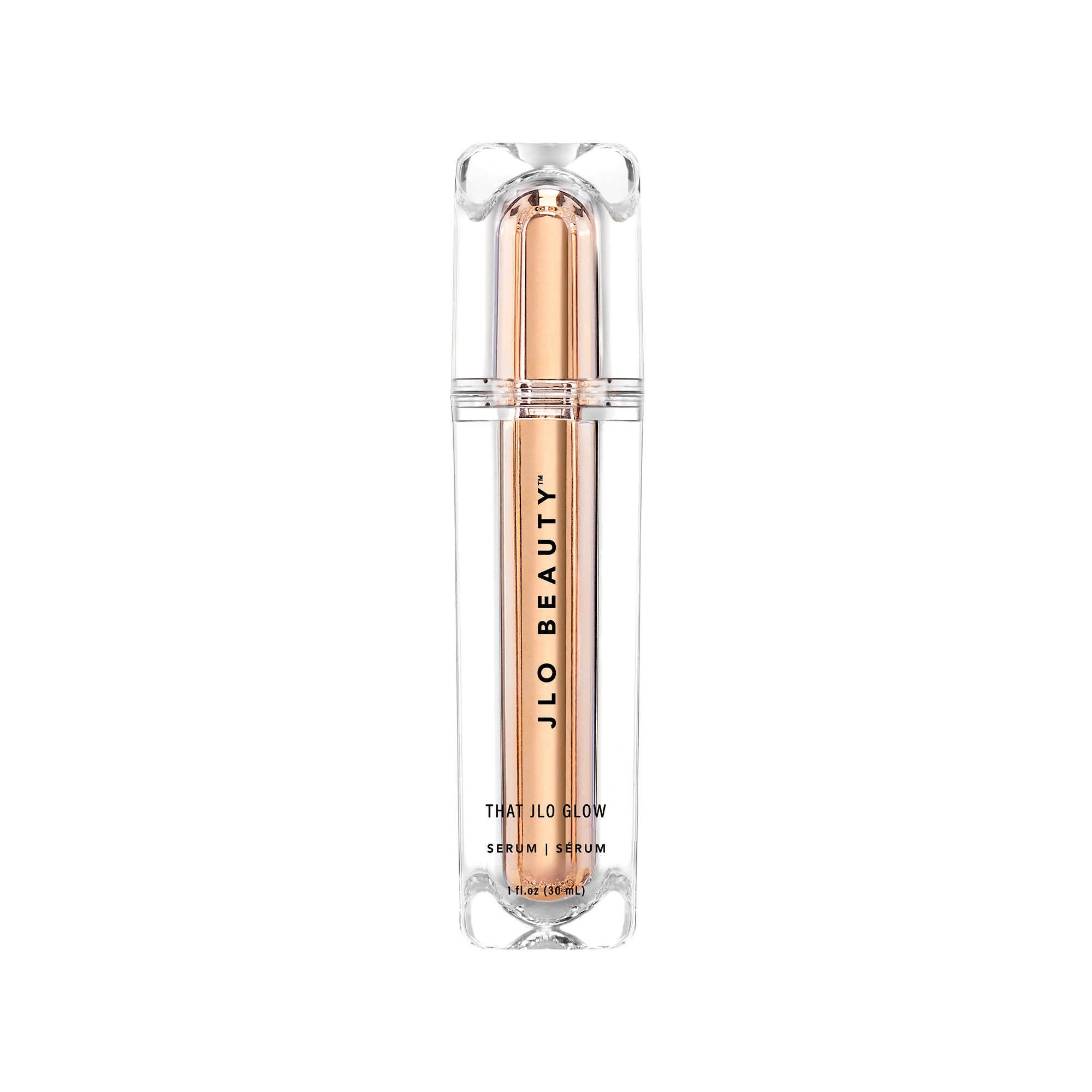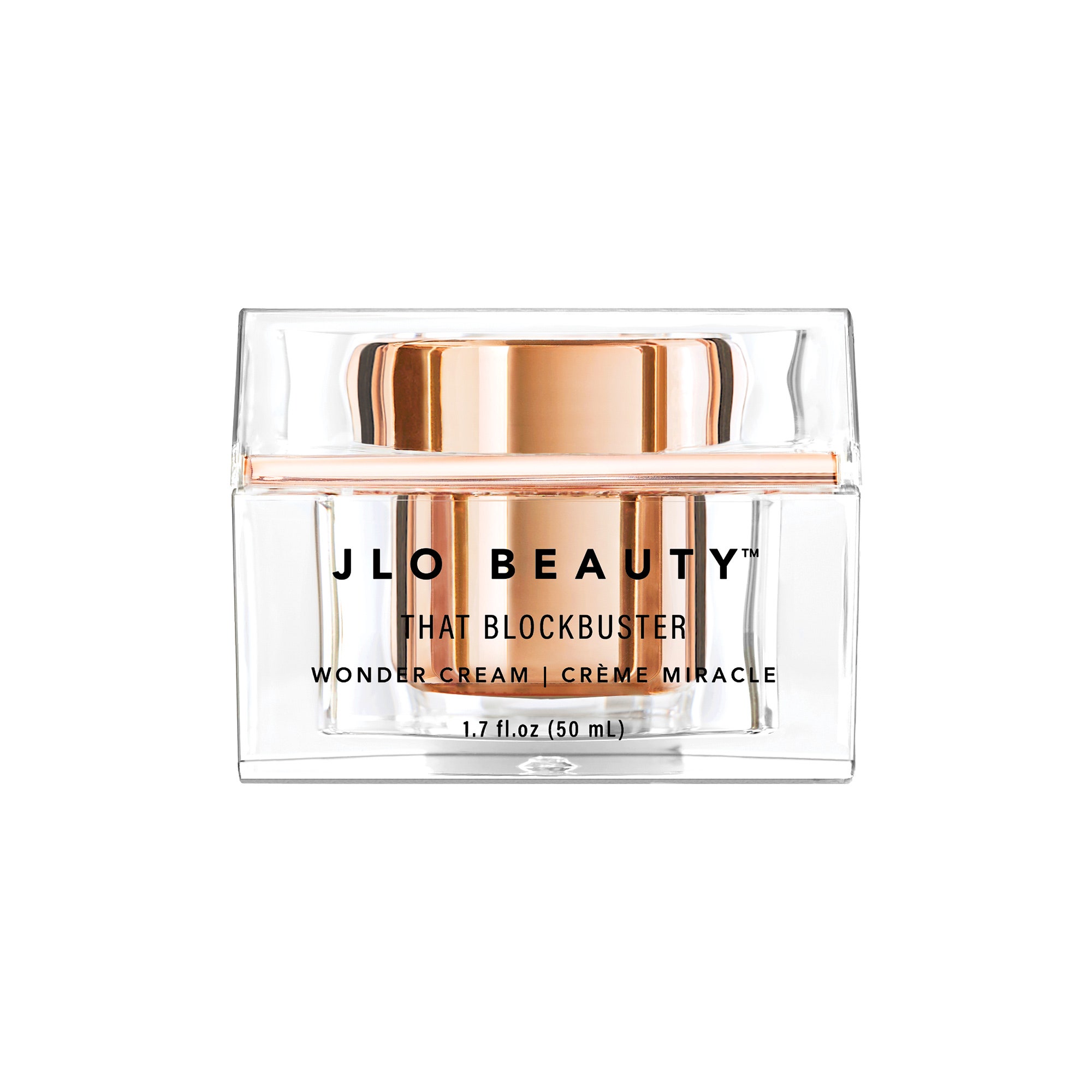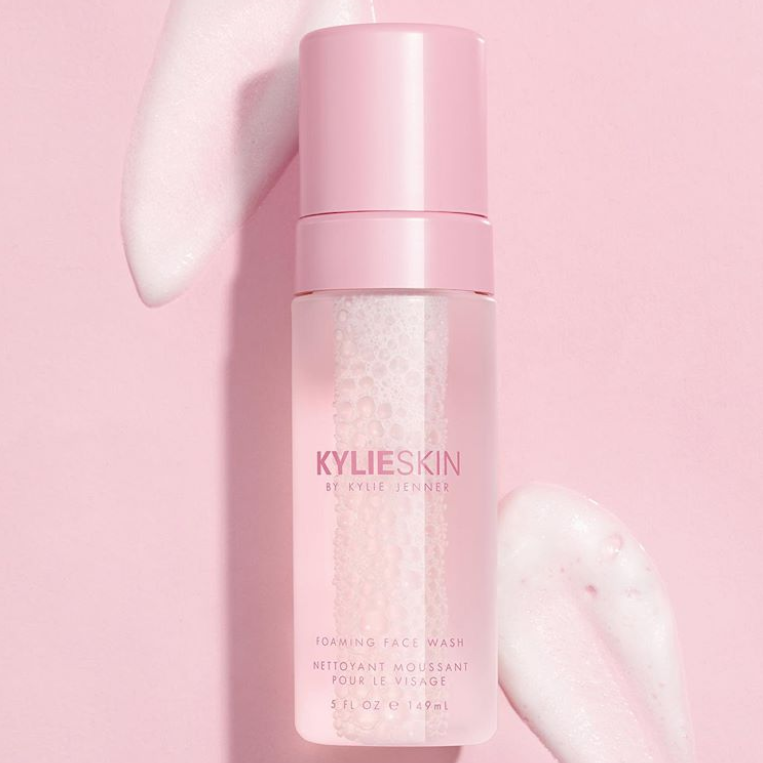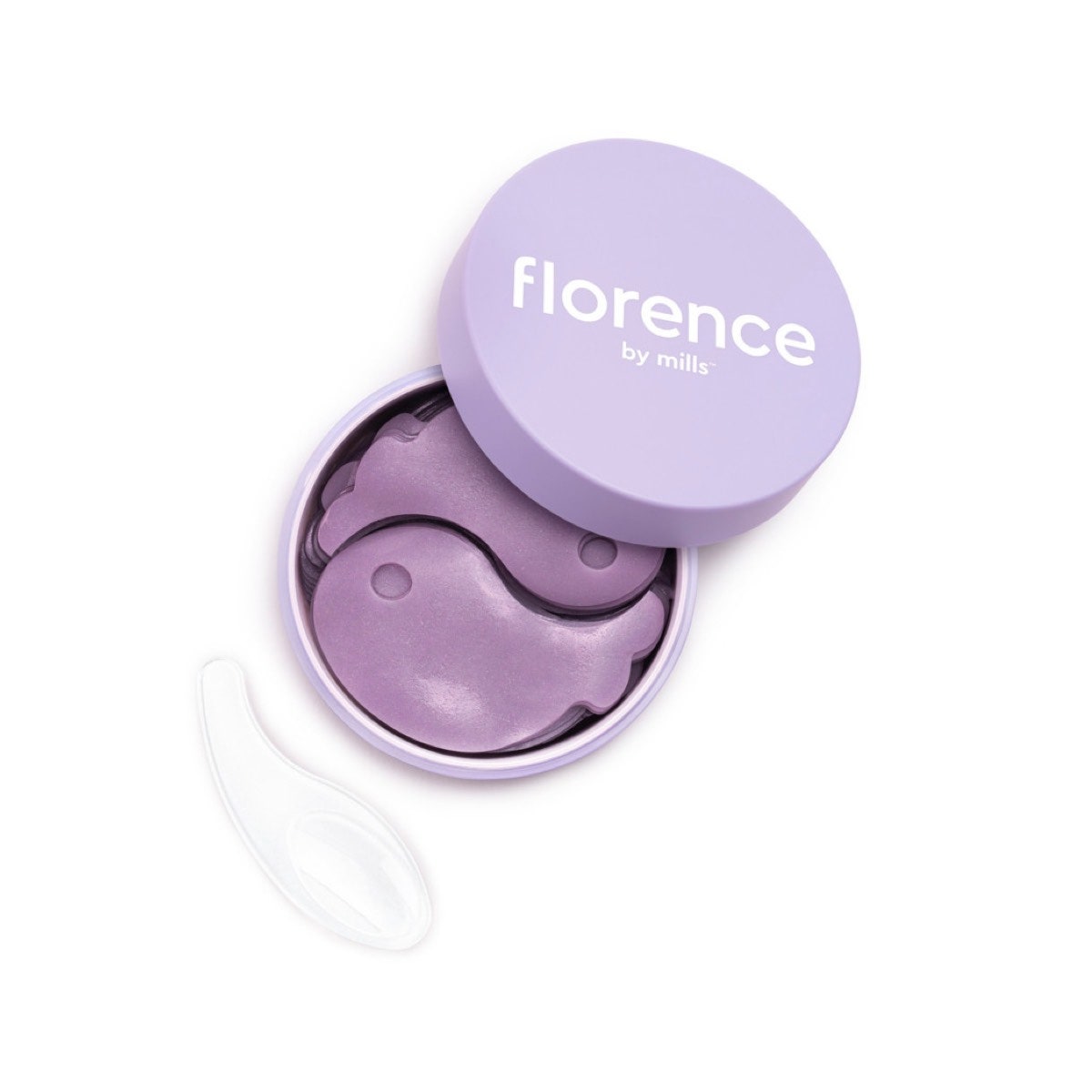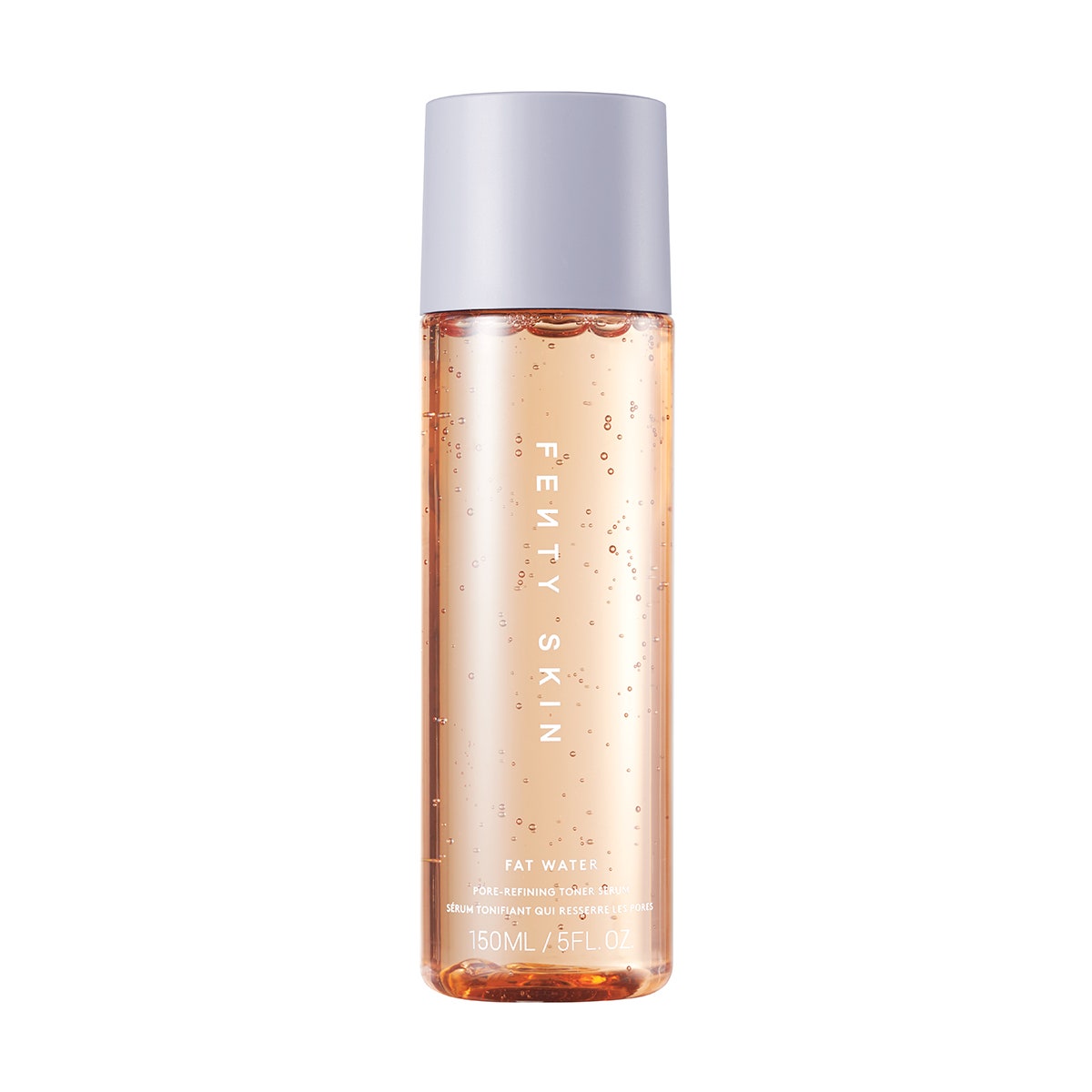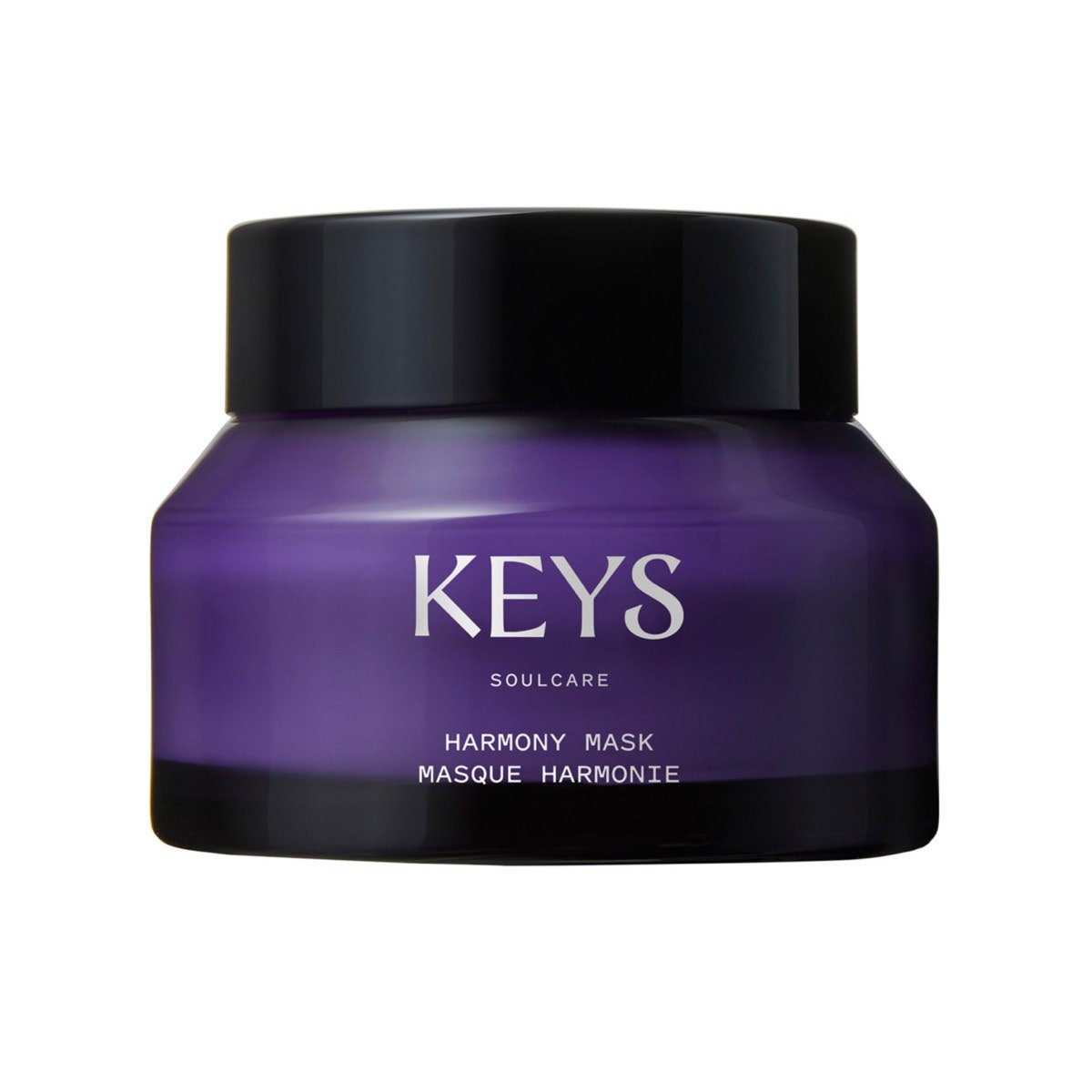Kylie, Rihanna, and J.Lo have one. And probably Kris soon too. Here's why you're suddenly seeing so many celebrities getting into skin care.

Do All These Celebrities Need a Skin Care Line?
Jennifer Lopez has been on a massive PR blitz over the last few months to tout her latest project. She’s graced the covers of Elle and Allure, signed autographs in Miami, talked with influencers over Zoom, and even hawked her new venture on Instagram while she was in D.C. for President Biden’s inauguration in January.
Publicity is certainly nothing new for the 51-year-old multi-hyphenate. She's released eight albums, starred in dozens of films and TV shows, and launched 25—yes, twenty-five—perfumes under her name. But her latest push is new, albeit familiar, terrain: It's for the launch of JLo Beauty, her skin care line.
Want to get a glow like J.Lo? Well, she’s now selling a serum promising literally that—it's called “That JLo Glow” and retails for $79—along with a “Wonder Cream” for $58, and a “Fresh Take Eye Cream” for $48, among several other products.
“I was just, like, I have to do skin care because the number one question, no matter where I went—if I was filming a movie, music, or whatever—was ‘what are you doing for your skin?,’” Lopez told a group of beauty editors, including Glamour, ahead of the launch.
JLo Beauty That JLo Glow Serum
$118JLo BeautyJLo Beauty That Blockbuster Wonder Cream
$58JLo BeautyHere’s the thing—Lopez isn’t the only celebrity trying her hand at skin care. Far from it. Alicia Keys has Keys Soulcare, which is billed as a “dermatologist-developed” line that launched late last year. Rihanna’s Fenty Skin, which consists of four “hero” products, launched last summer. Then there’s the millennial pink-packaged Kylie Skin, Pharrell Williams with Humanrace, which includes a “three-minute facial,” and Millie Bobby Brown’s Florence By Mills, dubbed as clean beauty for teens. And these are just the brands that have launched recently. Hailey Bieber has hinted on social media that she has a skin care line in the works called Rhode, and the rumor mill is swirling that Kris Jenner Skin will be the next big thing coming from the Kardashian-Jenners, presumably targeted to mature skin.
But…why?
“We're not seeing celebrities as much as we did these days,” says Rachel Weingarten, a beauty expert who has consulted with numerous celebrities on their beauty lines. “They don’t have glamorous movie premieres, there are less opportunities for endorsements. They have to do something to get their name out there and make money right now.”
While in the past, a makeup line would have been the logical choice, beauty trends that have been intensified by the pandemic seem to have made skin care more enticing. A McKinsey & Company report last May found that the beauty industry had been “shocked by the COVID-19 crisis.” Prestige makeup lines—think the brands stocked by Sephora and department stores—saw a 36% drop in sales in the second quarter of 2020, according to market research firm The NPD Group. Seventy-one percent of women surveyed by the firm said they “wear makeup less often due to Covid-19 lifestyle changes.”
Skin care meanwhile has been a bright spot for brands—riding the wave of self-care trends that were surging even before the pandemic. Last summer, for the first time, skin care product sales surpassed makeup sales, per NPD.
And where there is money to be made, celebrities are rarely far behind. Sucharita Kodali, an analyst at market research firm Forrester, believes that skin care in particular has a lot of advantages for celebrities looking to capitalize. “It's a high-margin category and the barriers to entry are low,” she tells Glamour. “There is an ecosystem of suppliers that can help celebrities launch products fairly easily—packaging, manufacturing—and the celebrity can bring their social media followings for marketing. The way I see it, skin care is easier than food, less capital intensive than apparel, and more scalable than content. The only other thing that is easier for a celebrity to do is to license their name or get paid for being a celebrity endorser.”
AdvertisementHow much risk a celebrity assumes by launching a skin care line depends on how involved they even are. Starting the company from the ground up—as Lopez has done and Kylie Jenner notably did—can be the most lucrative course, but the highest risk. There are also licensing deals and hybrid licensing deals that give celebrities some equity. That’s Rihanna arrangement with Fenty Beauty, which LVMH owns the majority of and she owns a reported 15%. Other celebrities have negotiated a guaranteed royalty by licensing their lines.
Kylie Skin Foaming Face Wash
I was definitely one of the skeptics, but don't knock Kylie Skin until you try it. This face wash was really nice! I usually find foaming cleansers a little drying, and they often leave my face feeling stripped, but that wasn't the case here. This one is hydrating and refreshing. I don’t think it will replace my regular face wash, but I’ll definitely keep playing with it to see if it works with my skin long-term. —Tara Gonzalez, associate commerce editor$24Kylie SkinFlorence by Mills Swimming Under the Eyes Gel Pads
$34UltaFenty Skin Fat Water Pore-Refining Toner Serum
When Rihanna launched her new skin-care line, Fenty Skin, the critics came fast and swift over the fact that her toner contained witch hazel (which can be irritating to sensitive-skin types). But it got nothing but glowing reviews—and glowing results—for Glamour's senior beauty editor Lindsay Schallon. “The real magic is in its consistent use, leading you to look in the mirror two weeks later and wonder if you've actually been sleeping eight hours a night. You haven't. It's the serum,” she wrote in her review of Fenty Skin. That's because its other ingredients—niacinamide (to help minimize dark spots and even skin tone), vitamin C (for brightening), and Australian lemon myrtle (to reduce oil and refine pores)—go to work to rejuvenate your skin. $28Fenty SkinKeys Soulcare Harmony Mask
$28Keys SoulcareStacy Jones, the founder and CEO of Hollywood Branded, which brings celebrities and companies together for partnerships, thinks it’s more attractive than ever for celebrities to run their own brands—rather than just slapping their name on something via a licensing deal.
“Celebrities want an active stake in the action, where their time and energy, and association, can yield returns that far outlast a single endorsement campaign,” she told Glamour. “The sky is the limit now, thanks to social media and the massive footprint celebrities have online. From celebrities receiving C-suite titles to creating limited-edition lines, to fully branded and owned product lines…it’s a potential financial windfall.”
How big of a financial windfall are we talking about here? Many people point to Jenner’s success—selling 51% of her beauty line to Coty for $600 million, but there are other runaway success stories to point to too, like Gwyneth Paltrow’s Goop, which was valued at $250 million in 2018, and Jessica Alba’s Honest Company—now a $1 billion unicorn. Skin care is a core business for both these companies.
“A brand that is established and grows will, over time, yield more income than an endorsement or licensing deal that ends after a set number of years,” Jones points out.
Still, not everyone watching this space is convinced that most of these lines will ultimately be successful. Selling skin care isn’t exactly the same as convincing people that tangerine lipstick is a must-have. “Makeup is something that you can see, skin care is something you can’t—it’s an invisible investment,” says Renée Chow, the founder of the skin care–focused Instagram handle Gothamista. “Most of these celebrity lines are just not that appealing to me. I gravitate towards specially formulated skin care and a lot of these products are just contract manufactured.”
Small amounts of blowback have already percolated. Kylie Jenner faced pushback because her walnut facial scrub was deemed as being too harsh—even harmful—for skin. Fenty fans took to Twitter to express disappointment that the line is fragranced, which irritates some people’s skin.
Considering that skin care is invisible, it begs the question of whether shoppers will even buy that celebrities use their own lines or if the products are at all responsible for their flawless skin. For example, Millie Bobby Brown was called out for faking using her skin care line in a promotional video. And critics of JLo Beauty have pointed out a somewhat obvious detail: J.Lo had amazing skin long before she created this line, even if the products do use ingredients she says she's relied on throughout her career.
“These celebrities look so good because they have access to skin care and regular specialized treatments—things that are really a privilege,” says Chow. “My gut reaction is that the average consumer knows that to some degree, and realizes it’s not just olive oil that is making someone look a certain way. There may be interest from die-hard fans, but I’m not sure everyone is going to have an interest.”
https://twitter.com/AlleyDalley/status/1334362028383748098While social media and access to a built-in fanbase offers celebrities a massive leg up, success still comes down to sustained sales over time. “Some celebrities may be able to sell to high-end stores like Sephora and even some may end up in mass channels like CVS or Target,” Kodali said. “That usually can help drive success. It’s very hard to just build a massive brand that people buy over and over again with a few videos on YouTube. The biggest sign of success will likely be if any of them get acquired by a bigger company like Estée Lauder, L'Oréal, or Revlon.”
With so much money floating around and so many lines launched by celebrities, does a line failing even matter? Jones thinks failure will impact a celebrity’s ability to raise capital for another line in the future or their ability to partner with brands on licensing deals.
To the everyday shopper, though, failure may hardly register. “Unless they fail spectacularly, they're just going to be another statistic,” Weingarten says. “And J.Lo can always come out with kombucha next year.”
Leah Bourne is a writer in New York City. Follow her on Instagram @fromthefrontrow.
This story originally appeared on: Glamour - Author:Leah Bourne
